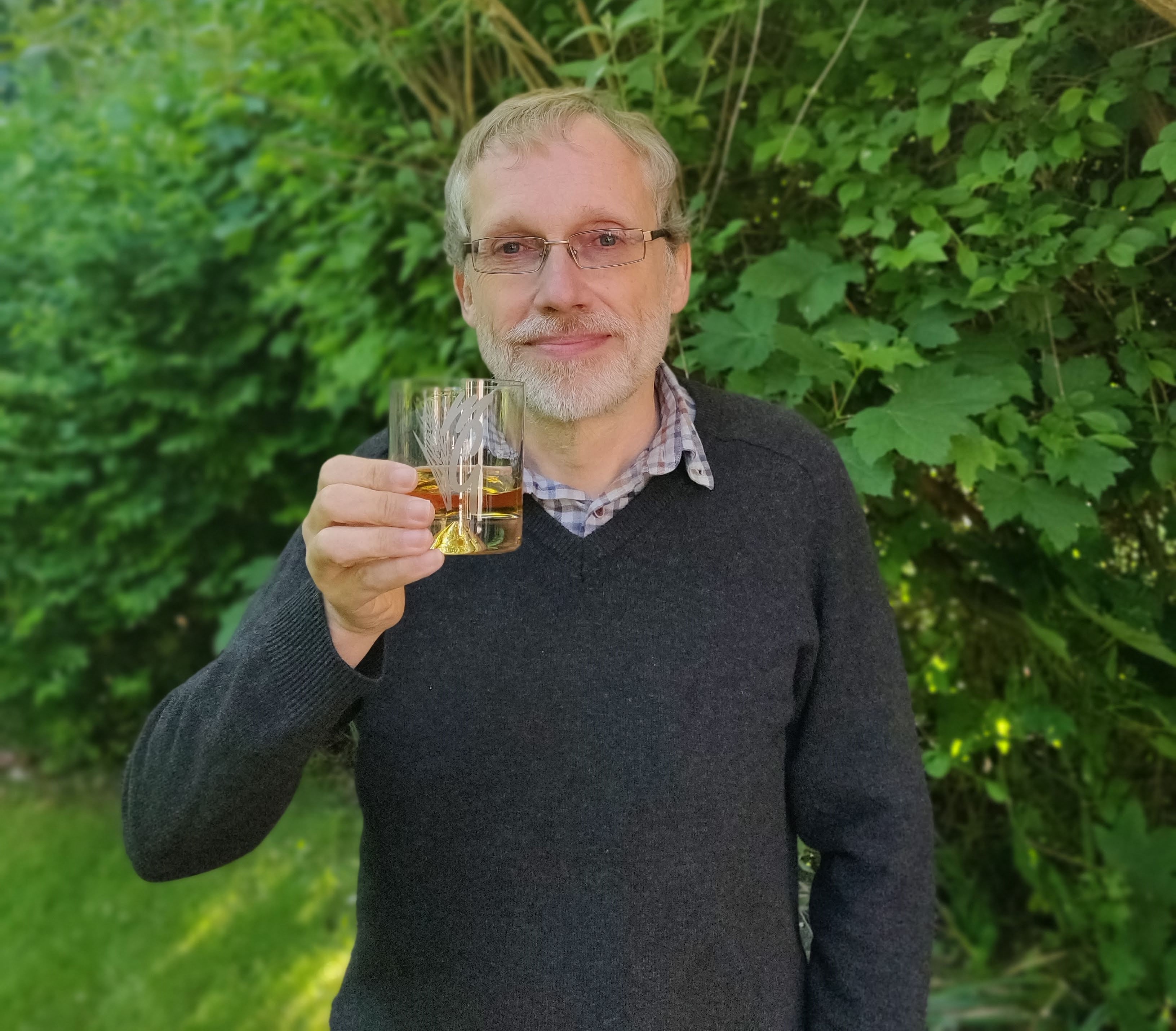The big picture: using wildflower strips for pest control
Rothamsted scientists have bred a type of wheat specifically to improve whisky production.
The group’s lead researcher says this new wheat will reduce the processing problems, higher energy use, and wear on pumps caused by using current wheat varieties.
Dr Rowan Mitchell said: “At present using wheat grain is a problem for distilleries because it causes sticky residues that mean the whole distillery must be shut down for cleaning.
“Our novel wheat is designed to have grain with low levels of soluble dietary fibre and should greatly decrease these problems. Great for making whisky, but the opposite to what’s required by bakers.”
He added that the development will also make UK grown wheat more desirable for use in whisky compared to imported maize, which is currently easier to process.

This new wheat line is one of the first wheat varieties in the world developed using ‘reverse genetics’ - where scientists start with knowledge of what a gene does, rather than screening for the trait in a plant first and then looking for which of its genes are responsible.
Their non-GM approach, called TILLING, allowed them to rapidly breed their gene of choice into an existing wheat variety – no easy task as wheat has six copies of each of its genes compared to only two copies of each in humans.
The group focused in on genes they discovered that controlled the amount of a chemical found in plant cell walls called arabinoxylan, responsible for soluble fibre levels and what determines its viscosity - whether the liquid extract is ‘thin’ like water, or ‘thick’ like honey.
By using traditional plant breeding methods, they created wheat lines where these genes had stopped working – referred to as ‘knock out’ or loss of function lines.
In these lines, the arabinoxylan molecules where both shorter and fewer in number, leading to a whisky-friendly wheat that produces a liquid extract between 50 and 80% less ‘gloopy’ compared to wheat without the knock-out genes.
Interestingly, the team saw that the plant responded to this change by increasing the bonds between the remaining arabinoxylan molecules, which helped it maintain the size and shape of its cells.
The group have a patent on the use of the gene for this application and are now working with plant breeding company Limagrain to develop a new commercial variety.
Co-author Dr Simon Berry, marker specialist at Limagrain, said: “There is going to be a pilot scale test on about a quarter of a tonne of grain at a distillery this year and we are aiming for an official trials entry within the next 5 years.
“Low viscosity wheat would strengthen the continued use of UK wheat in distilling and offer a solution to those distillers still using maize.”
Scotch production is an extremely important industry to the UK, worth about £5 bn per year.
The project, which also included the Scotch Whisky Research Institute, was funded by UKRI and Innovate UK.
Rothamsted Research is the longest-running agricultural research institute in the world. We work from gene to field with a proud history of ground-breaking
discoveries in areas as diverse as crop management, statistical interpretation and soil health. Our founders, in 1843, were the pioneers of modern
agriculture, and we are known for our imaginative science and our collaborative approach to developing innovative farm practice.
Through independent research, we make significant contributions to improving agri-food systems in the UK and internationally, with
economic impact estimated to exceed £3 bn in annual contribution to the UK economy. Our strength lies in our systems approach, which combines strategic research,
interdisciplinary teams and multiple partnerships.
Rothamsted is home to three unique National Bioscience Research Infrastructures which are open to researchers from all over the world:
The Long-Term Experiments,
Rothamsted Insect Survey and the
North Wyke Farm Platform.
We are strategically funded by the Biotechnology and Biological Sciences Research Council (BBSRC), with additional support from other national and
international funding streams, and from industry. We are also supported by the Lawes Agricultural Trust (LAT).
The Biotechnology and Biological Sciences Research Council is part of UK Research and Innovation, a non-departmental public body funded by a grant-in-aid
from the UK government.
BBSRC invests to push back the frontiers of biology and deliver a healthy, prosperous and sustainable future. Through our investments, we build and support a vibrant,
dynamic and inclusive community which delivers ground-breaking discoveries and develops bio-based solutions that contribute to tackling global challenges,
such as sustainable food production, climate change, and healthy ageing.
As part of UK Research and Innovation (UKRI), we not only play a pivotal role in fostering connections that enable the UK’s world-class research and innovation system
to flourish – we also have a responsibility to enable the creation of a research culture that is diverse, resilient, and engaged.
BBSRC proudly forges interdisciplinary collaborations where excellent bioscience has a fundamental role. We pioneer approaches that enhance the equality, diversity,
and inclusion of talent by investing in people, infrastructure, technologies, and partnerships on a global scale.
The Lawes Agricultural Trust, established in 1889 by Sir John Bennet Lawes, supports Rothamsted Research’s national and international agricultural science through the provision of land, facilities and funding. LAT, a charitable trust, owns the estates at Harpenden and Broom's Barn, including many of the buildings used by Rothamsted Research. LAT provides an annual research grant to the Director, accommodation for nearly 200 people, and support for fellowships for young scientists from developing countries. LAT also makes capital grants to help modernise facilities at Rothamsted, or invests in new buildings.